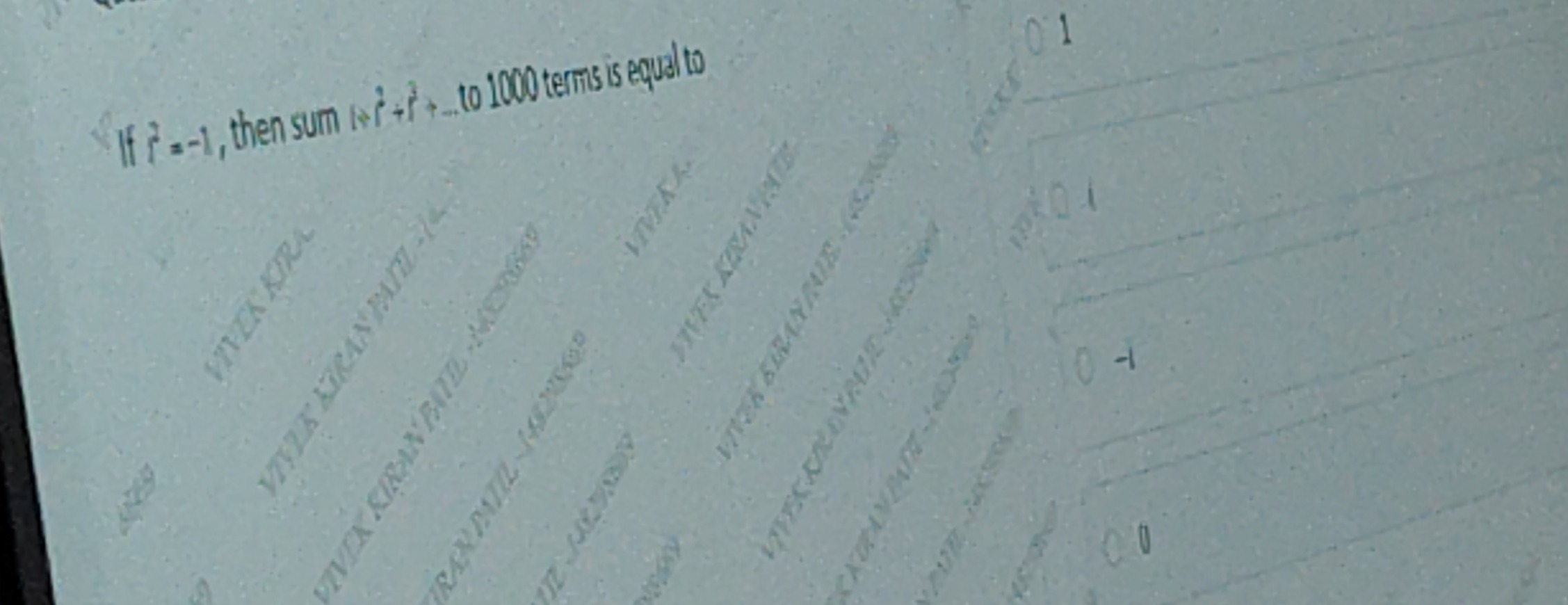Question
Question: If $i^2 = -1$, then sum $1 + i^2 + i^4 + ...$ to 1000 terms is equal to...
If i2=−1, then sum 1+i2+i4+... to 1000 terms is equal to

0 1
10 1
0 -1
0 0
0
Solution
The given series is 1+i2+i4+... to 1000 terms.
Let's analyze the terms of the series:
The first term is a1=1.
The second term is a2=i2=−1.
The third term is a3=i4=(i2)2=(−1)2=1.
The fourth term is a4=i6=(i2)3=(−1)3=−1.
The series is 1,−1,1,−1,.... This is an alternating series.
This is a geometric progression with:
First term, a=1.
Common ratio, r=1i2=i2=−1.
Number of terms, n=1000.
The sum of a finite geometric series is given by the formula:
Sn=1−ra(1−rn)
Substitute the values:
S1000=1−(−1)1(1−(−1)1000)
Now, evaluate (−1)1000. Since 1000 is an even number, (−1)1000=1.
Substitute this back into the sum formula:
S1000=1+11(1−1)
S1000=20
S1000=0
Alternatively, we can group the terms:
The series is 1+(−1)+1+(−1)+... to 1000 terms.
We can group the terms in pairs:
(1+(−1))+(1+(−1))+...
Each pair sums to 1−1=0.
Since there are 1000 terms, there are 1000/2=500 such pairs.
The total sum is 500×0=0.
The sum of the series is 0.
